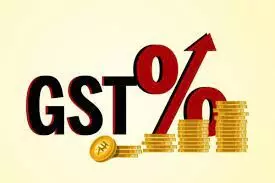
Clothing, footwear, Uber/Ola rides to get expensive from Jan 1
text_fieldsNew Delhi: The Union government's announced Goods and Service Tax (GST) rate hikes will come into existence on January 1, 2022, and finished goods like footwear, textiles etc., are to get expensive. Rides on app aggregators' taxis like Uber and Ola are also going to be costly.
The Central Board of Indirect Taxes and Customs (CBITC) had notified on November 18 that GST on finished items had been hiked from 5 per cent to 12 per cent. Clothing costing up to Rs 1000 per unit will have GST of 12 per cent, raised from the 5 per cent earlier.
The same will go for textiles such as woven fabrics, synthetic yarn, blankets, tents, table cloths, serviettes etc. A similar hike is also imposed on footwear, costing up to Rs 1000 per pair.
The CBITC also had announced the levying of 5 per cent GST on taxis booked online like Uber, Ola etc. This was GST-free earlier. However, auto rides taken directly from streets won't have this GST.
Clothing Manufacturers Association of India had expressed their disappointment with the new GST rules. They said that this hike would seriously impact the apparel industry, inducing inflation, causing pressure on prices on raw materials, such as yarn, packing material, and shipment.
Meanwhile, sources from online taxi businesses asked the government to review the tax amendment. They argued that it would affect auto drivers' earnings as well as the government's plans of digitisation.
Another change on GST is that food delivery apps have to collect the 5 per cent GST for their deliveries instead of restaurants. The government had said that there wouldn't be an additional tax burden on customers in this case, and this way, revenue leakage could be put under check.
























